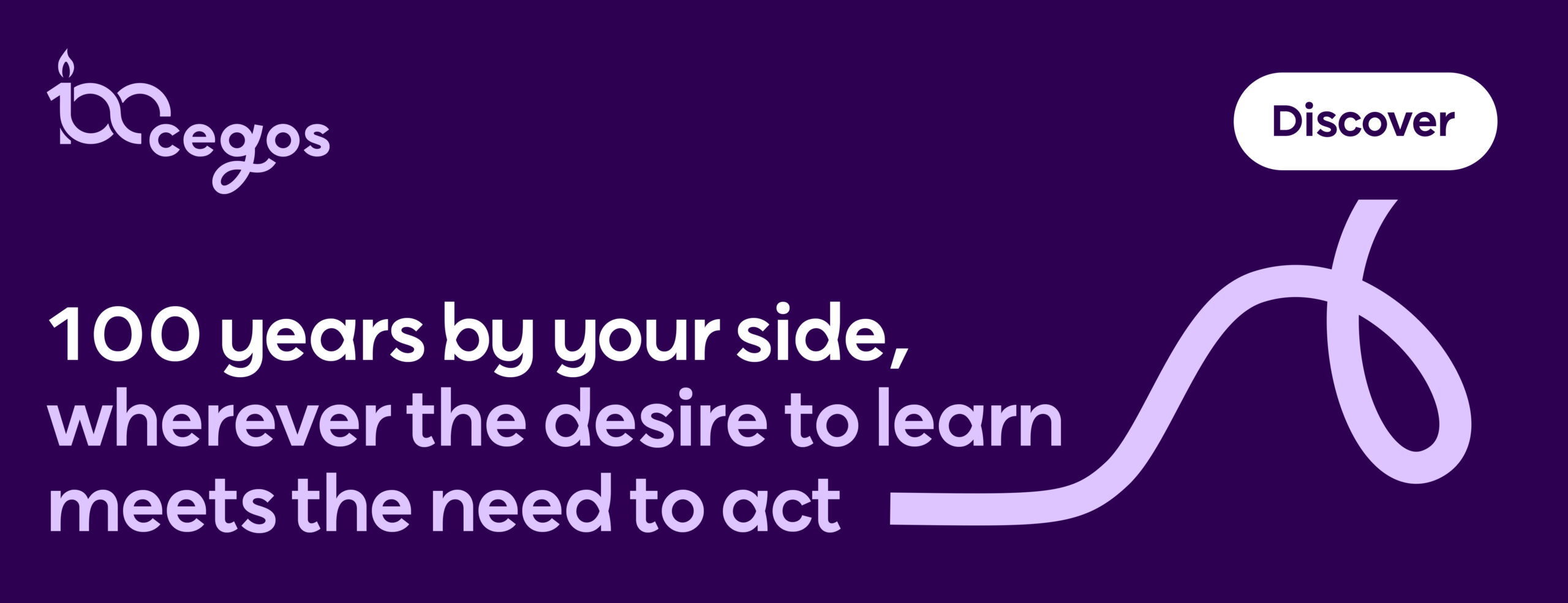

The biggest T&D conference in Latin America is over and now is the time to get everything off the paper, the cell phone screen, the notepad and bring all the lessons learned from CBTD 2023 into everyday life.
Here, I'll share 6 insights into what happened there. Now, if you followed along, it’s your opportunity to revisit some of what was most special there.
Without further ado, let's start learning!
1- The important thing is not to stop unlearning
Everything we know about learning is not even close to being everything we still have to learn.
The world changing – and increasingly faster – shows us that the REALLY important thing is not to stop unlearning to relearn.
Especially when we talk about technology – oh, how this topic was trending in the corridors!
This year, CBTD came with the theme “Humanize to prosper: building connections and cultivating engagement”, but far beyond lectures on humanisation and connection, (as we saw last year) there is Artificial Intelligence.
The question that remains, in the end, is: how do we reconcile high tech with high touch? We'll talk more about this in the next topic.
2- Human being vs. Technological being
Where is the balance between technological being and human being?
Artificial intelligence was one of the big questions of CBTD 2023.
On the one hand, how do we enhance innovation through technology? On the other hand, how do we create safe spaces for people to have the opportunity to innovate?
One reflection that stuck was: jobs don't disappear because new technologies emerge, but because we don't innovate based on them!
And then we get scared about digital transformation, right? It is not technology that transforms the market, but people who add value.
3- A guide for (not so) difficult conversations
Keeping your mouth closed prevents mosquitoes from getting in, but it also leaves your head full of snails…
We need difficult conversations more than ever! Communication is one of the most important skills for organizations today, and a simple Google can prove this better than I can.
But… Knowing this is still not enough for us to put aside our fears and keep our mouths closed and our heads full.
Well, let me tell you a secret: the causes of conflicts have much more to do with the way we speak than, in fact, with what we say.
But to do this, we have to give up the witch hunt: who is right? Who is wrong? Who is to blame?
4- Positive intelligence: the power of good fun
You can be serious without being serious!
You've probably seen someone “funny” appear incompetent or have their abilities questioned due to their lack of seriousness, right?
Well, it may not be that explicit, but good humour is taboo in the corporate world and we need to talk about it!
It is possible to be serious without being serious and good humour does not nullify competence, nor does it make us immature or unprepared for the corporate world.
In fact, isn't this exactly what we need to make our companies more humanised, healthier and, in addition, achieve better results?
Lightness, laughter and good humour connect people and even enhance the feeling of well-being. There's the little flea behind the ear.
5- Love is what love does
Have you ever heard about “love attitude”? I heard this term at CBTD in one of our master Marco Fabossi's lectures and it was something that really caught on.
If you don't know what it is, here goes: love attitude is a way of seeing love beyond “feelings”. In practice, it means doing something for someone regardless of the feeling and without expecting anything in return.
The message at the end is: there is no point in just loving, you need to make people feel pleasure and desire to contribute, and all this by demonstrating love through attitudes. Wouldn’t this also be a way to build healthier companies? Speaking of which… Let's move on to the next topic.
6- Psychological safety and error: a powerful combination
Psychological safety is also one of the major themes of this edition of CBTD! But the truth is: there is a lot of myth, distortion and confusion about what this concept really means in practice.
Psychological safety is not just about being sincere, welcoming and living in harmony all the time.
In fact, if that were the case, we would spend so much time stuck in sincerity, extreme empathy and avoiding failures, that there would barely be room to focus on results.
In fact, it is proven that teams with psychological security actually make more mistakes than others. (What?!)
In reality, teams with this environment talk more about their mistakes, test more and use mistakes as a learning opportunity, because they have a mature environment in which to do so.
What’s coming next?
If there's anything that CBTD 2023 showed, it's that now, more than ever, we need to humanise relationships and put people at the centre of business. Now, it's about taking advantage of each of these insights in practice, and not just leaving them on the mental notepad: the most challenging part of the process.
Should you wish to find out how Cegos integrates these insights into its learning approaches and programmes, contact us!
This article was written by Bruna Pratali, Content Manager at Crescimentum.










